Martin Hultman*
Abstract: The scientific knowledge of global climate change has been accepted and on the political and public agenda in the last thirty years, but today it is contested along party political fault lines. Far-right wing political parties across Europe have followed their conservative siblings in US, Canada and Australia and are now spreading climate change denial. In this article we follow the history of climate change denial and far-right party politics in one significant European country – that of Sweden. The article discusses how the issue was brought into parliament, in what way it is part of a industrial/breadwinner masculinities identity politics and how the climate change denial is entangled in pan-European neo-fascist collaboration.
Keywords: Climate change denial, far-right wing, white-male effect, ecocide
Introduction
For over thirty years the scientific knowledge of global climate change has been on the political and public agenda. Scientific awareness of the greenhouse effect, and human influence on the climate, has existed for over five decades. Today, we are further from dealing with the root causes than ever before and emissions from burning fossil fuels and other sources of greenhouse gases rise, at the same time as extractive industries and far-right wing political parties merge in climate change denial. In the comprehensive project: “Why don’t we take climate change seriously? A study of climate change denial”, led by me and centered at Chalmers in Sweden the world’s foremost researchers is now collaborating exposing among else the right-wing nationalism road to ecocide. During the 1980s, there was a strong environmental movement and a political consensus on the issue, and Social democratic politicians in the frontline dealing with it, but in recent years climate change denial – denying that changes to the climate are due to human influence on the environment – has increased which makes the case for understanding why this is so?
One empirically understudied, if noted, subject of both organized and lay climate change denial is thus how this has spread as part of far-right nationalism (Hultman and Kall 2014; Forchtner and Kølvraa 2015; Jeffries 2017; Lockwood 2018; Forchtner et. al. 2018 Hultman, et. al., 2019). This tendency is just starting to get scholarly attention, and this special issue is one good example of is, despite its possibility of providing new and important knowledge specifically of resistance towards effective climate politics as well as of broader political issues such as democracy, human rights and diversity. Only three empirical studies have been conducted so far on this specific topic. Regarding online communication in Germany it is found that ‘skeptic counterpublic is not restricted to voices pertaining to climate change but forms an alliance of antagonism with other extreme fractions such as mysogynists, racists, and conspiracy theorists’ (Kaiser and Puschmann 2017). In a more qualitative selected corpus of magazines and a blog ranging from anti-liberal to neo-Nazi, still on Germany, many of the familiar arguments and tropes regarding climate denialism has been found such as climate science being a religious cult, elite money-making scam and invented by mainstream media (Forchtner et. al. 2018). In a quantitative study of Norway based on Gallup data a link between xenophobic values and climate denialism was found (Krange et. al. 2018).
Sweden is a country with high credentials in both environmental politics and welcoming refugees. However, over the last couple of years, Sweden, like the rest of Europe, has seen how ideas from organized climate change denialist groups have merged with a far-right nationalist political party, creating a new political landscape (Hultman et al., 2019). This article discusses that shift, arguing that what has been brought about in Sweden exposes similar trends occurring in other countries across Europe. For those feeling trapped in unwanted timeshare commitments, navigating the complexities of such contracts can be overwhelming, much like the political shifts in Sweden. If you’re looking for guidance on this topic, How to Exit Timeshare Contract on Triphippies.com offers valuable resources to help you understand the necessary steps to free yourself from an unwanted timeshare.
Image 1: Forest fire in Ängra, Sweden. Author: Marco Hassoldt.

Climate change denial brought into parliament
The Sweden Democrats is a nationalist, social conservative party with roots in Nazism (Mulinari and Neergaard, 2014). The history of the party goes back to 1986 when the so called Swedish Party was formed at a merge between the political party called Preserve Sweden Swedish and Progress Party. Following the almost immediately split of the party, the Swedish Democrats (SD) were formed. SDs’ first board consisted exclusively of men who had previously been active in Preserve Sweden Swedish and Swedish Party. As global social and environmental concerns gain momentum, climate change denial has ramped up to cast climate science as oppositional to the implied securities and assumed entitlements of masculine primacy in connection to right-wing nationalism (Pulé & Hultman, 2019). SD was elected into Swedish parliament for the first time in 2010. In the recent election SD got 18% of the votes. Environmental issues have been part of SD politics since 1989. In the party program from this year, the Swedish Democrats took up environmental issues since that was high up on the agenda at that time in Sweden. Back then, and to some extent also today, the focus was on protecting ‘Swedish’ landscapes and Swedes health and their animals, in line with their Nazi root ideology (Mulinari and Neergaard, 2014).
Of lately the neo-liberal global turn has changed the politics in Sweden towards conservative ends and created space for/been pushed towards by the far-right nationalist party called Sweden Democrats (SD). The Sweden Democrats, The United Kingdom Independence Party (UKIP), Front National in France, Danish Folkparty and The Progress Party in Norway as well as The Party for Freedom in Holland are but a few of the right-wing nationalist parties that have had recent success in both national and European elections, and which have used denial arguments to attack climate change mitigation policies (Forchtner & Kølvraa 2015; Hultman & Anshelm, 2017). Since three consecutive elections, they are firmly placed in an unneglectable swing role that Swedish governments both of liberal-conservative and social democratic-green shapes have needed to consider. It was not until recently that their environmental policies made it into the public debate, this time aligned with outspoken climate change denialism under the influence by older powerful men from the Stockholm Initiative (SI) (Baas, 2016).
When the party entered the Swedish parliament in 2010, one of the issues they brought along was climate denialism. They discredited the Green Party as media favourites and elitist, following a long tradition of right-wing politicians doing so. On January 29, 2013, in a debate on climate the Swedish Democrat Josef Fransson (the party’s spokesperson in energy and environmental issues) said that “the apocalyptic scenarios that many people believe in regarding the climate is false”. He described the Green Party as their biggest opponent and a communist nightmare, spoke of climate researchers who only are in it for the money and their career, and pointed to an economy restricted by planetary limits (Hultman and Kall, 2014). Presented in this way the climate issue fitted into a rhetorical pattern created by the SD, in which they present themselves as the party of the masses in contrast to the false elites (Hultman, et. al., 2019).
Fransson was in his speech in the parliament sarcastic towards all researchers, human rights organisations and politicans that have in his view “built a lucrative career built on global warming fear”. If money would be directed to energy issues it .is towards nuclear energy. It has even gone so far, according to Fransson, that “the vegan movement has taken over the Swedish Board of Agriculture”, as the authority discusses the climate impact of meat. Like other climate denialists in Sweden, SD take a positivist approach to science, except for climate science which they claim is politically constructed grounded in a totalitarian idea of world dominance. In his speech in front of the parliament Fransson put forward many classical climate denial arguments. First, he said that science is not set and that there is no agreement. Then he claimed that the Swedish emissions are comparatively low (despite being around 10 tonnes per capita). He went on blaming greedy scientists to create results for money. Further he argued that other environmental and social issues are of more importance to spend money on. He concluded by alluding to a conspiracy in which “the elites” have created the climate as an issue to be used as a dominating strategy enforcing a socialist planned economy on all humans (Hultman, et. al., 2019)
Building international climate change denial collaboration
In 2014 Fransson wrote in the web magazine News 24 that climate models are “useless” and the UN IPCC “presents conclusions that they do not have research to cover” (Hultman, et. al., 2019). In the months leading up to the Paris meeting, Fransson was very active in social media as well as in mass media. On Twitter he exclaimed that the meeting was frivolous and suggested a YouTube clip featuring climate denialist Richard Lindzen, connected to Cato institute funded by Koch industries. In one interview with the magazine KIT, Fransson claimed that there has been “no significant warming the last 17-18 years” (Hultman, et. al., 2019). In a debate article in autumn 2015 he claimed that higher levels of man-made carbon dioxide were a blessing as “the soil become greener and crops grown larger due to the plants’ greater access to carbon dioxide. In a couple of decades, I think we look back at today’s emergency alarm regarding the climate with amazement” (Hultman, et. al., 2019). Fransson, being his party’s energy- and environment spokesperson, is a significant voice, and his judgment is supported by other parliamentarians as well as municipality politicians of SD.
As analysed elsewhere, based upon a large empirical data set of letters to editors, social media and internal member papers, the climate change denial among right-wing nationalist party could be explained in three interconnected ways. First we have the anti-establishment rhetoric by which they are trying to put in place an idea of climate science as elite-propaganda. Then we have the so called ‘conservative male effect’ in which large scale industrial modern fossil fuel based technologies are not to be said having any risks or need of change. Thirdly is the focus on economic growth within nations – the GDP paradigm that enable them to shift blame away from smaller states with high per capita emissions to larger states with low per capita emissions (Hultman et. al., 2019).
In Sweden, climate change denialism gained increased visibility during 2016-2017 (Vi-skogen, 2017), a trend detectible also in the opinion pieces we have analysed from SD. SD voted no for the ratification of the Paris Agreement on 12 October 2016, in contrast to all other parties in the parliament. In October 2016, the Swedish Democrats presented a budget proposal for spring 2017 where the climate issue was given only half a page and using quotation marks around the word ‘climate’. The Swedish Democrats also describe the climate debate as ‘weird’ in the same budget. They wanted to reduce funding for SMHI, Swedish climate and meteorology board, with the argument that SMHI exaggerates the seriousness of climate. In their next budget proposal, the Swedish Democrats wanted to reduce climate-related efforts by SEK 8 billion. Another very visable sign of the merge between climate change denialism and far-right nationalism was presented n the autumn 2016 when a coalition of far-right movements in Europe awarded Václav Klaus their most prestigious price European Freedom Awards at a public ceremony in Sweden organised by SD. Klaus had since the start of the Stockholm Initiative organisation been one of the few upheld politicians by the group because of his climate change denialism. This makes Klaus the perfect symbol of the merge between the both groups as well as a possibility to understand the ethno-nationalists as connected by climate change denialism not least since all the far-right nationalist parties such as AfD, Ukip is part of the award committee (Hultman, et. al., 2019).
To conclude
SD:s climate politics is created through polarization especially with the Green Party, but with the hegemony of ecomodernism overall in mobilizing climate change denial research, downplaying Swedes overall high climate impact. SD claim that the mainstream scientists and politicians are distorting the scientific evidence due to their own personal interests, thereby intimidating and misleading the people (Anshelm and Hultman, 2014; Krange et.al., 2018). A demographic of working class males that shares the interests with male elite groups at the top of the pyramid populates this group. It might be possible to also understand this in term industrial/breadwinner masculinities identities, identities stuck in a Fordist logic that is hardly any longer present. The merge between far-right nationalism and climate change denialism is based upon the ideological similarities in viewing the world from an industrial/breadwinner masculinities viewpoint, not wanting to let go of the colonial extractive logic that have served these men well; but violated the planet. It is also evident that this groups has a very fixed idea of nation states as part of their identity, as well as technologies created within an industrial, modern logic, for example nuclear power.
References
Hultman, M., Björk A. & Viinikka, T. (2019), “Far-right and climate change denial. Denouncing environmental challenges via anti-establishment rhetoric, marketing of doubts, industrial/breadwinner masculinities enactments and ethno-nationalism.”. In Contemporary Environmental Communication by the Far Right in Europe ed. Forchtner, Kølvraa & Wodak London: Routledge
Anshelm, Jonas., and Hultman, M. (2014) A green fatwā? Climate change as a threat to the masculinity of industrial modernity. NORMA: International Journal for Masculinity Studies, vol. 9(2), pp. 84-96
Baas, David (2016-10-19b) SD-politik styrs dolt av klimatförnekare. Expressen. http://www.expressen.se/nyheter/sd-politik-styrs-dolt-av-klimatfornekare/ [2017-01- 03]
Dunlap, Riley., McCright, A. M. (2015) Challenging Climate Change – The Denial Countermovement. In Dunlap R. E. and Brulle R. J. (eds.), Climate change and Society – Sociological Perspectives. New York: Oxford University Press
Dunlap, Riley, McCright, A. M., Yarosh, J. H. (2016) The political divide on climate change: Partisan polarization widens in the US. Environment: Science and Policy for Sustainable Development, vol. 58(5), pp. 4-23
Edvardsson Björnberg, Karin, Karlsson, M., Gilek, M., Hansson, S. O. (2017) Climate and environmental science denial: A review of the scientific literature published in 1990- 2015. Journal of Cleaner Production, vol. 167, pp. 229-241
Farrell, Justin. (2016) Network structure and influence of the climate change counter-movement. Nature Climate Change, vol. 6(4), pp. 370-374
Forchtner, Bernard, Kølvraa, C. (2015) The nature of nationalism: Populist radical right parties on countryside and climate. Nature and Culture, vol. 10(2), pp. 199-224
Forchtner, Bernard, Kroneder, A., Wetzel, D. (2018). Being Skeptical? Exploring Far-Right Climate Change Communication in Germany. Environmental Communication, 12(5), 589-604.
Hultman, Martin and Anshelm, J. (2017) “Masculinities of climate change. Exploring examples of industrial, ecomodern, and ecological masculinities in the age of Anthropocene” in Marjorie Cohen ed. Climate Change and Gender in Rich Countries. London:Routledge
Hultman, Martin, Kall, A-S. (2014-09-08) Klimatskepticismen frodas på högerkanten. Sydsvenskan. https://www.sydsvenskan.se/2014-09-08/klimatskepticismen-frodas-pa-hogerkanten [2017-09-10]
Hultman, M. & Pulé, P. Ecological Masculinities: A Response to the Manthropocene Question?
Gottzén, L., Mellström, U. & Shefer, T. (2019) Routledge International Handbook of Masculinity Studies. Routledge.Oxon
Hultman, M., Björk, A., & Viinikka, T. (2019). The Far Right and Climate Change Denial: Denouncing environmental challenges via anti-establishment rhetoric, marketing of doubts, industrial/breadwinner masculinities enactments and ethno-nationalism. In The Far Right and the Environment (pp. 121-135). Routledge.
Jeffries, Elisabeth (2017). Nationalist advance. Nature Climate Change, 7(7), 469.
Kaiser, Jonas, and Puschmann, C. (2017). Alliance of antagonism: Counterpublics and polarization in online climate change communication. Communication and the Public, 2(4), 371-387.
Krange, Olve, Kaltenborn, B., and Hultman, M. (2018) Cool dudes in Norway: Climate change denial among conservative Norwegian men, Environmental Sociology, 1-11
Lockwood, Matthew. (2018) Right-wing populism and the climate change agenda: exploring the linkages. Environmental Politics, vol. 1-21
Mulinari, Diana, Neergaard, A. (2014) We are Sweden Democrats because we care for others: Exploring racisms in the Swedish extreme right. European Journal of Women’s Studies, vol. 21(1), pp. 43-56
Pulé, P. M., & Hultman, M. (2019). ‘Fossil Fuel, Industrial/Breadwinner Masculinities and climate change: understanding the “white male effect” of climate denial’ in Climate Hazards, Disaster, and Gender Ramifications, edited by Helle Rydstrom and Catarina Kinnvall. Oxon: Routledge.
Vi-skogen. (2017) Varmare klimat – en iskall nyhet
—
* Chalmers University of Technology, Sweden. E-mail: martin.hultman@chalmers.se.
—







